Find The Best Pressure Washing Services On CleaningMatch.com
Find & Hire Trusted Pressure Washing Experts
CleaningMatch.com connects you with vetted pressure washing services for any project. Get free quotes, compare services, and find the perfect match for your pressure washing needs in the UK. Whether you need fence cleaning, roof cleaning, patio cleaning, or building washing, we've got you covered.
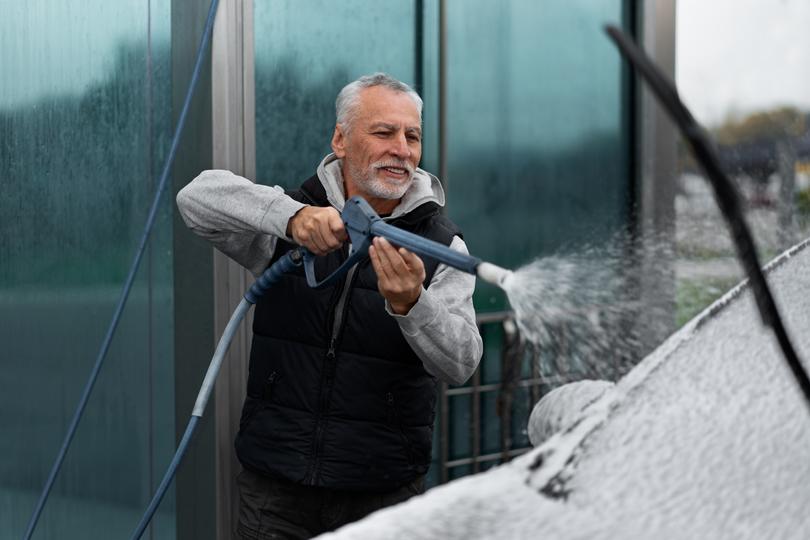
Pressure Washing Services Near Me
Looking for pressure washing services in a specific location? Browse our directory to find pressure washing companies near you across the UK.
Finding The Right Pressure Washing Service Is Easy With CleaningMatch.com
We make it simple to connect with vetted pressure washing professionals across the UK.
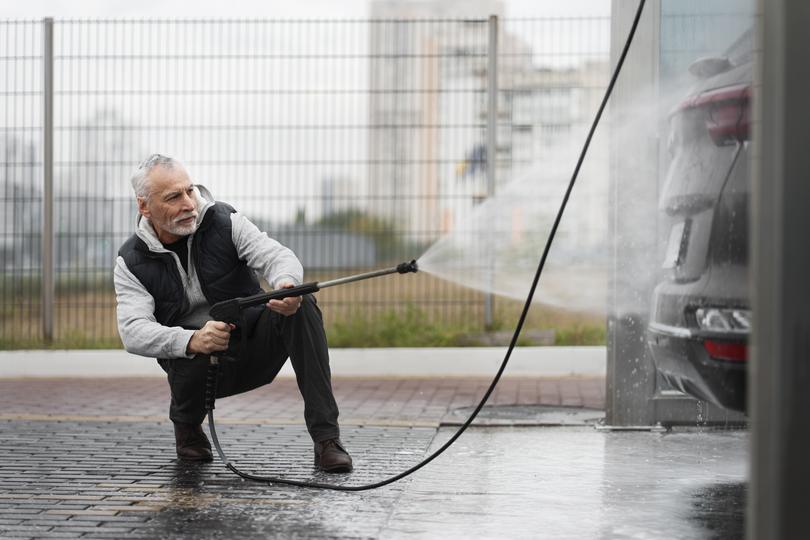
- Tell Us About Your Project
- Describe what you need pressure washed - your driveway, deck, fence, house siding, etc. Let us know the size of the area and any specific cleaning challenges like mold or mildew.
- We Connect You With Local Pressure Washers
- We'll match you with reputable pressure washing companies in your area who have experience with your type of project and the right equipment for the job.
- Compare Quotes & Choose The Best Fit
- Review quotes, compare services, and choose the pressure washing company who best meets your needs and budget. We provide you with the information you need to make an informed decision.
- Get Your Project Done!
- With the right pressure washing company, you can revitalize your outdoor surfaces and enhance your property's curb appeal.
Why Choose CleaningMatch.com for Your Pressure Washing Needs?
Why Choose CleaningMatch for Your Cleaning Needs?
We know that finding reliable and experienced pressure washing professionals can be challenging. That's why CleaningMatch.com simplifies the process, connecting you with vetted pressure washers who deliver exceptional results. We make it easy to find and compare top cleaning companies in your area. Here's how:
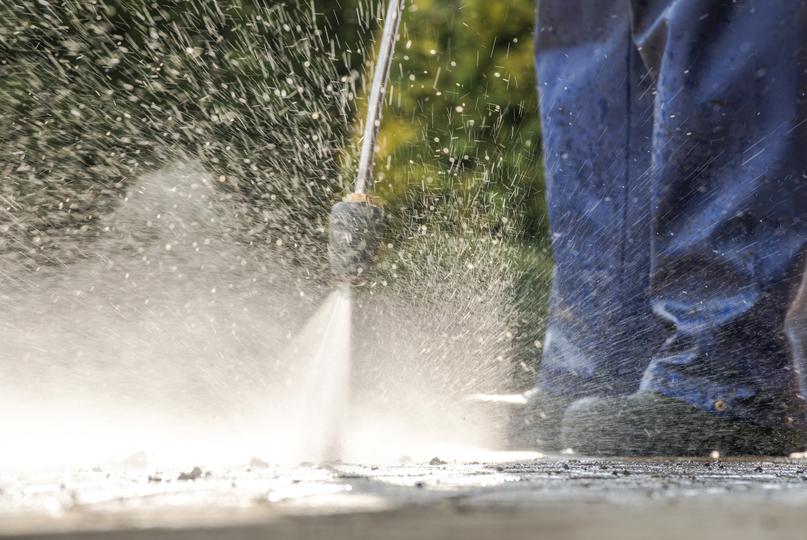
- Vetted & Trusted Professionals
- We carefully vet all pressure washing companies in our directory to ensure they are licensed, insured, and have a proven track record of quality workmanship and customer satisfaction. You can have confidence in our network of experienced pressure washers.
- Competitive Quotes & Transparent Pricing
- Compare prices from multiple pressure washing companies and find the best deal for your budget. Our platform ensures transparent pricing, so you know what to expect upfront with no hidden fees.
- Save Time & Effort
- Let us do the work for you! Find the right pressure washing company quickly and easily without endless searching. Simply submit your project details and we'll connect you with qualified professionals in your area.
- Wide Range of Services
- We offer a comprehensive directory of pressure washing companies specializing in various services, including residential, commercial, driveway cleaning, deck cleaning, fence cleaning, roof cleaning, and more. Find the perfect match for your specific pressure washing needs.
- Excellent Customer Support
- Our dedicated customer support team is here to help you with any questions or concerns. We're committed to providing a seamless and positive experience for all our users.
- Free To Use
- CleaningMatch.com is completely free to use for homeowners and businesses. There are no hidden fees or obligations. Get started today and find the perfect pressure washing service for your needs.
Boost Your Business's Curb Appeal With Professional Pressure Washing
Commercial Pressure Washing Services
Maintaining a clean and inviting exterior is essential for any business. CleaningMatch.com connects you with experienced commercial pressure washing companies that can handle the unique demands of commercial properties. Our network includes specialists in cleaning parking garages, sidewalks, building facades, industrial equipment and more. Revitalize your business's exterior and make a lasting impression on customers.

Maintain a clean and healthy work environment. Find trusted commercial cleaning services for your office or business.

Instantly boost your curb appeal. Connect with top-rated pressure washing services near you for all your exterior cleaning needs.
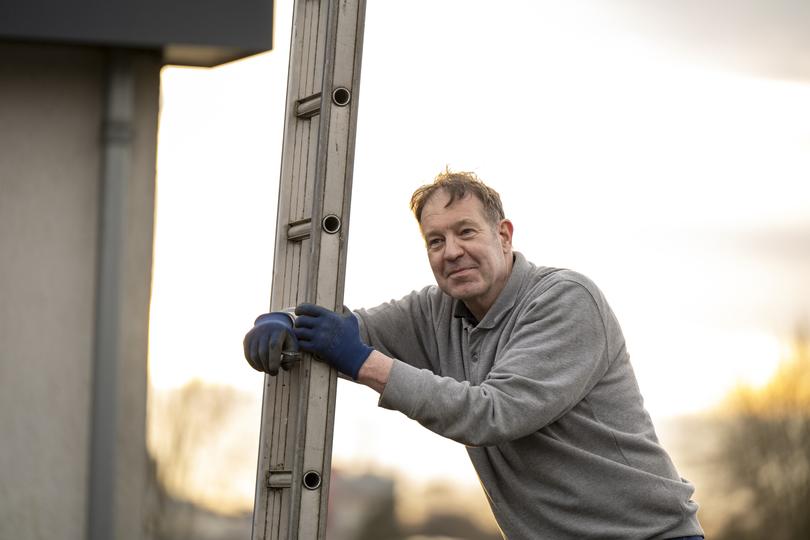
Protect your home from water damage. Find reliable gutter cleaning services to keep your gutters free-flowing.

Get fresh and clean carpets. We connect you with professional carpet cleaning services in your area.
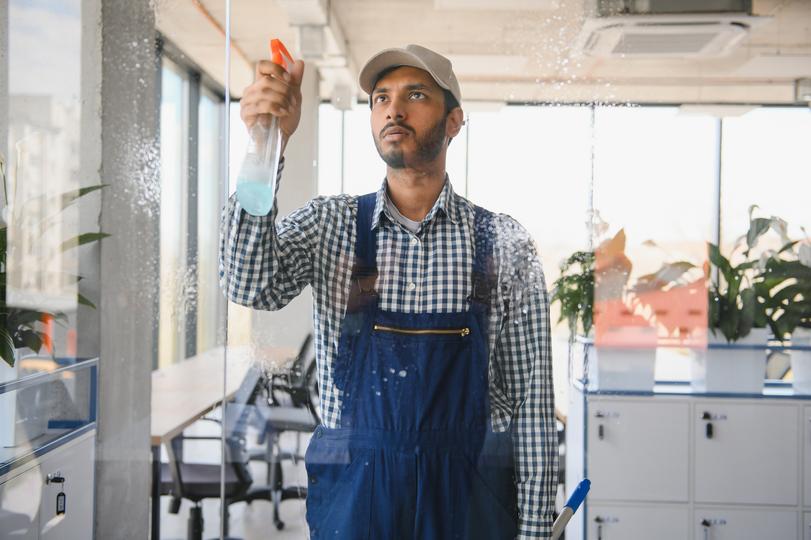
Enjoy crystal clear views with our top-rated window cleaning services. Get a streak-free shine for your home or business.
Transform Your Home's Exterior With Expert Pressure Washing
Residential Pressure Washing Services
CleaningMatch.com helps you find reliable residential pressure washing services to revitalize your home's exterior. Our network of professionals can handle driveways, decks, fences, patios, siding and more. Enhance your curb appeal, remove stubborn dirt and grime, and protect your home's exterior with our top-rated pressure washing services.
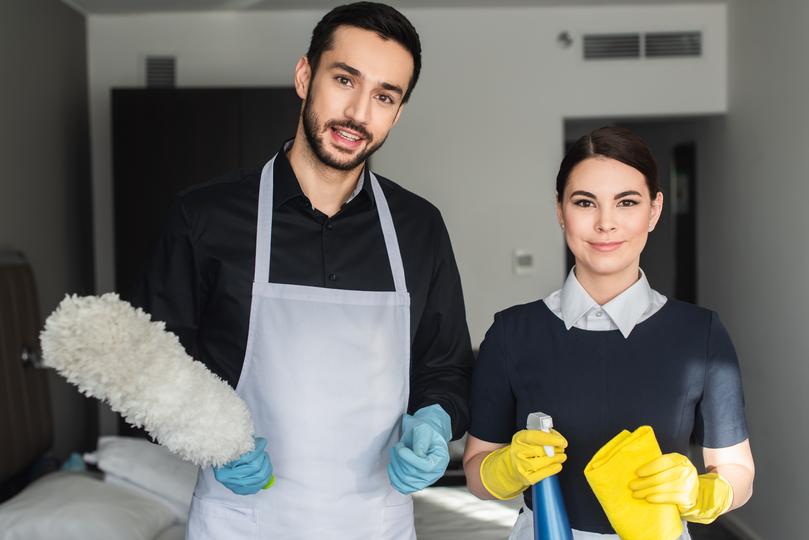
Find top-rated cleaning services near you. Get quotes for house cleaning, office cleaning, and more.

Instantly boost your curb appeal. Connect with top-rated pressure washing services near you for all your exterior cleaning needs.

Protect your home from water damage. Find reliable gutter cleaning services to keep your gutters free-flowing.

Get fresh and clean carpets. We connect you with professional carpet cleaning services in your area.

Enjoy crystal clear views with our top-rated window cleaning services. Get a streak-free shine for your home or business.
Ready to Give Your Property a Fresh Start?
Find The Best Pressure Washing Services on CleaningMatch.com!
Get free quotes, compare services, and connect with trusted professionals in minutes.
Pressure Washing Glossary
PSI
GPM
Nozzle
Surface Cleaner
Soft Washing
Detergent
Efflorescence
Oxidation
Graffiti Removal
Rust Removal
Pressure Washer
Wand
Hose
Chemical Injector
Hot Water Pressure Washer
Frequently Asked Questions About Pressure Washing
How do I find a good pressure washing service?
- Online Reviews: Check online reviews on platforms like Google, Yelp, and Facebook to gauge customer satisfaction and service quality.
- Experience and Expertise: Look for companies with a proven track record and experience in pressure washing various surfaces.
- Licensing and Insurance: Ensure the company is licensed and insured to protect you from liability in case of accidents or damage.
- Equipment and Techniques: Inquire about the company's equipment and techniques to ensure they use appropriate pressure levels and cleaning solutions for different surfaces.
- Quotes and Pricing: Obtain detailed quotes from multiple pressure washing companies and compare their pricing. Make sure the quotes are transparent, outlining all services and costs.
- Professionalism and Communication: Choose a company that is responsive, provides clear communication, and demonstrates professionalism in its interactions.
Utilize online directories like CleaningMatch to find and compare qualified pressure washing services in your area.
How much does pressure washing cost?
- Size of the Area: Larger areas generally cost more to pressure wash than smaller ones.
- Type of Surface: Different surfaces require different pressure levels and cleaning solutions, which can affect pricing.
- Condition of the Surface: Heavily soiled or stained surfaces may require more time and effort to clean, impacting cost.
- Accessibility: Difficult-to-reach areas may require specialized equipment and increase costs.
- Additional Services: Services like pre-treating stains, applying protective coatings, or mold removal may incur additional charges.
To get accurate pricing, request quotes from multiple pressure washing companies. Provide details about the size and type of surface, its condition, and any additional services you require.
What are the benefits of pressure washing?
- Enhanced Curb Appeal: Pressure washing removes dirt, grime, and stains, instantly revitalizing the appearance of your property and boosting curb appeal.
- Improved Health and Safety: Pressure washing removes mold, mildew, algae, and other contaminants that can pose health risks and create slippery surfaces.
- Increased Property Value: A well-maintained exterior, achieved through regular pressure washing, can increase the value of your property.
- Preventative Maintenance: Pressure washing removes dirt and grime that can deteriorate surfaces over time, extending the lifespan of your driveway, deck, fence, and other exterior features.
- Preparation for Painting or Staining: Pressure washing is an essential step before painting or staining, as it provides a clean and receptive surface for the new coating to adhere to.
Whether you're looking to improve your property's appearance, protect its value, or enhance health and safety, pressure washing is a valuable investment.
What surfaces can be pressure washed?
- Driveways: Removes oil stains, tire marks, dirt, and grime, restoring the appearance of concrete, asphalt, or paver driveways.
- Decks and Patios: Cleans wood, composite, or concrete decks and patios, removing dirt, mildew, and algae, and preparing them for staining or sealing.
- Fences: Revitalizes wood, vinyl, or composite fences, removing dirt, grime, and weathering, and enhancing their appearance.
- Siding: Cleans vinyl, aluminum, brick, or wood siding, removing dirt, mold, mildew, and other contaminants, and restoring its original color.
- Roofs: Removes moss, algae, and other debris from roofs, extending their lifespan and improving their appearance. Soft washing is typically recommended for roof cleaning to prevent damage.
- Walkways and Sidewalks: Cleans concrete or brick walkways and sidewalks, removing dirt, grime, and stains, and improving safety by reducing slipperiness.
- Brick and Stone: Cleans brick and stone surfaces, removing dirt, mildew, and efflorescence, and restoring their natural beauty.
It's important to note that different surfaces require different pressure levels and cleaning solutions. Always consult with a professional pressure washing company to determine the appropriate cleaning method for your specific needs.
What is the difference between pressure washing and soft washing?
Pressure washing uses high-pressure water spray to blast away dirt, grime, and other stubborn contaminants from hard surfaces. It's effective for cleaning driveways, decks, patios, fences, and siding.
Soft washing utilizes low-pressure water combined with specialized cleaning solutions to gently remove dirt, mold, mildew, and algae from delicate surfaces like roofs, siding, and painted surfaces. Soft washing is less abrasive than pressure washing, preventing damage to sensitive materials.
Choosing the appropriate cleaning method depends on the type of surface, its condition, and the desired cleaning outcome. Consult with a professional pressure washing company to determine the best approach for your specific needs.
How often should I pressure wash my house?
- Annually: Pressure washing your house at least once a year helps remove accumulated dirt, grime, and other contaminants, keeping it looking its best.
- Every 2-3 Years: If you live in an area with high humidity, heavy tree cover, or frequent exposure to pollutants, more frequent pressure washing may be necessary.
- When Visible Dirt and Grime Appear: Address visible dirt, stains, or mold growth promptly to prevent them from becoming more challenging to remove.
Regular pressure washing can maintain your home's exterior, extend the lifespan of your siding, and enhance its curb appeal.
Is pressure washing safe for all surfaces?
- Wood Siding: High-pressure washing can damage wood fibers, leading to splintering or etching. Soft washing is the recommended method for cleaning wood siding.
- Asphalt Shingles: High-pressure water can dislodge granules from asphalt shingles, reducing their lifespan. Soft washing is a gentler alternative for roof cleaning.
- Painted Surfaces: High pressure can strip paint from surfaces. Always test pressure washing on an inconspicuous area before cleaning painted surfaces.
- Windows and Screens: The force of pressure washing can break windows or damage delicate window screens. Traditional cleaning methods are better suited for windows and screens.
Always consult with a professional pressure washing company to determine the appropriate cleaning method for your specific surfaces.
Can I pressure wash my own house?
- Experience and Expertise: Professionals have the knowledge and skills to choose the right pressure levels and cleaning solutions for different surfaces, minimizing the risk of damage.
- Professional Equipment: Pressure washing companies use commercial-grade equipment that is more powerful and efficient than consumer-grade pressure washers.
- Safety: Pressure washing can be hazardous, especially when working on ladders or with high-pressure water. Professionals are trained in safety procedures and have the necessary equipment to work safely.
- Time-Saving: Pressure washing can be time-consuming, especially for larger projects. Hiring professionals frees up your time for other tasks.
If you're considering DIY pressure washing, assess the complexity of the project, your experience, and the risks involved. For larger or more challenging projects, hiring professionals is often a wiser and safer choice.
What type of pressure washer do I need for my home?
- Electric Pressure Washers: Suitable for light-duty cleaning tasks like washing cars, patios, or fences. They are less powerful than gas pressure washers but are generally more affordable and easier to operate.
- Gas Pressure Washers: More powerful than electric pressure washers, making them suitable for heavier cleaning tasks like removing stubborn stains, cleaning driveways, or stripping paint.
- PSI and GPM: Consider the PSI (Pounds per Square Inch) and GPM (Gallons per Minute) ratings. Higher PSI and GPM indicate a more powerful pressure washer. For most home cleaning tasks, a pressure washer with a PSI of 2000-3000 and a GPM of 2-3 is sufficient.
If you're unsure about the type of pressure washer best suited for your needs, consult with a pressure washing professional or a home improvement specialist.
What should I look for in a pressure washing company?
- Reputation and Reviews: Check online reviews and ask for referrals to gauge the company's reputation and customer satisfaction.
- Experience and Expertise: Look for a company with a proven track record and experience in pressure washing various surfaces.
- Licensing and Insurance: Ensure the company is licensed and insured to protect you from liability.
- Equipment and Techniques: Inquire about the company's equipment and techniques to ensure they use appropriate pressure levels and cleaning solutions.
- Quotes and Pricing: Obtain detailed quotes that outline all services and costs.
- Professionalism and Communication: Choose a company that is responsive, communicative, and professional.
A reputable pressure washing company will prioritize safety, use appropriate cleaning methods, and provide excellent customer service.
What questions should I ask a pressure washing contractor before hiring them?
- Experience: 'How long have you been in business, and what types of pressure washing projects do you specialize in?'
- Licensing and Insurance: 'Are you licensed, insured, and bonded? Can I see proof of coverage?'
- Equipment and Techniques: 'What type of pressure washer do you use? What cleaning solutions do you use, and are they safe for my surfaces?'
- Safety Precautions: 'What safety precautions do you take during pressure washing?'
- Surface Preparation: 'Will you need to move any furniture or objects before pressure washing?'
- Water Usage: 'Do you use a water reclamation system or other methods to conserve water?'
- Cleanup: 'How do you handle cleanup after pressure washing?'
- Guarantees: 'Do you offer a satisfaction guarantee?'
- References: 'Can you provide references from previous clients?'
By asking these questions, you can gather valuable information and choose a pressure washing contractor that meets your requirements.
What are some common pressure washing mistakes to avoid?
- Using Excessive Pressure: High-pressure water spray can damage delicate surfaces like wood siding or painted surfaces.
- Using the Wrong Nozzle: Different nozzles produce different spray patterns and pressure levels. Using the wrong nozzle can cause streaks, uneven cleaning, or damage.
- Holding the Nozzle Too Close to the Surface: Holding the nozzle too close can etch or damage the surface. Maintain a safe distance as recommended by the pressure washer manufacturer.
- Skipping Pre-Treatment: For stubborn stains or mold growth, pre-treating the surface with a cleaning solution can enhance cleaning effectiveness.
- Not Protecting Plants and Landscaping: Pressure washing chemicals and debris can harm plants and landscaping. Cover or shield sensitive areas before pressure washing.
If you're unsure about pressure washing techniques or the appropriate pressure levels for your surfaces, consult with a professional pressure washing company.
How do I prepare my property for pressure washing?
- Clear Obstructions: Remove any objects, furniture, or debris from the areas to be pressure washed.
- Close Windows and Doors: Securely close all windows and doors to prevent water or cleaning solutions from entering your home or building.
- Cover Delicate Surfaces: Protect delicate plants, landscaping, or electrical outlets with tarps, plastic sheeting, or painter's tape.
- Inform Your Neighbors: It's a courtesy to inform your neighbors about the scheduled pressure washing, especially if noise or overspray is a concern.
- Communicate Special Instructions: Inform the pressure washing company about any specific areas you want them to focus on or avoid.
By taking these preparatory steps, you can ensure a safe and efficient pressure washing experience.
What are the different types of pressure washer nozzles?
- 0-degree Nozzle: Produces a highly concentrated, powerful jet of water for removing stubborn stains or stripping paint. Use with caution as it can damage surfaces easily.
- 15-degree Nozzle: A versatile nozzle for cleaning concrete, brick, and other hard surfaces. Provides a good balance of pressure and coverage.
- 25-degree Nozzle: A wider spray pattern for cleaning delicate surfaces like siding or fences.
- 40-degree Nozzle: A very wide spray pattern, ideal for rinsing or applying cleaning solutions.
- Soap Nozzle: A low-pressure nozzle designed specifically for applying cleaning solutions.
- Rotary Nozzle: Also known as a turbo nozzle, it produces a rotating, high-impact spray for tackling tough stains and grime.
Choose the appropriate nozzle based on the cleaning task and the type of surface being cleaned. Consult the pressure washer manual or a professional pressure washer for guidance.
What are some safety precautions to take when pressure washing?
- Wear Protective Gear: Wear safety glasses, closed-toe shoes, and long pants to protect yourself from flying debris and water spray.
- Never Point the Nozzle at Yourself or Others: High-pressure water can cause serious injuries. Always point the nozzle away from yourself, others, and pets.
- Use Caution on Ladders: If working on a ladder, ensure it is stable and secure. Avoid overreaching or leaning too far to one side.
- Be Mindful of Electrical Hazards: Keep water away from electrical outlets, wiring, and appliances.
- Follow Manufacturer's Instructions: Always read and follow the pressure washer manufacturer's instructions for safe operation and maintenance.
Prioritizing safety when pressure washing protects you and others from potential injuries or accidents.
Can pressure washing damage my plants?
- Cover or Shield Plants: Before pressure washing, cover or shield delicate plants and landscaping with tarps, plastic sheeting, or painter's tape to protect them from water spray and chemicals.
- Use Lower Pressure Settings: If pressure washing near plants, use lower pressure settings and avoid directing the spray directly at them.
- Rinse Plants with Water: After pressure washing, rinse plants thoroughly with plain water to dilute any chemicals that may have landed on them.
- Choose Plant-Safe Cleaning Solutions: If using cleaning solutions, opt for environmentally friendly or plant-safe options whenever possible.
Taking these precautions minimizes the risk of damage to your plants and landscaping during pressure washing.
Can pressure washing remove mold and mildew?
- Pressure Washing: For hard surfaces like concrete, brick, or decks, pressure washing can effectively remove mold and mildew. Use a cleaning solution containing bleach or mildewcide for optimal results.
- Soft Washing: For delicate surfaces like roofs or siding, soft washing is the preferred method for mold and mildew removal. Soft washing uses low-pressure water and specialized cleaning solutions to gently remove mold and mildew without damaging the surface.
- Prevention: After cleaning, take steps to prevent future mold and mildew growth by addressing moisture issues, such as fixing leaks, improving ventilation, and trimming vegetation that creates shade and traps moisture.
If you have extensive or persistent mold and mildew problems, consult with a professional pressure washing company or a mold remediation specialist.
How do I know if I need pressure washing or soft washing?
- Pressure Washing: Suitable for hard surfaces like concrete, brick, stone, and decks that can withstand high pressure. Effective for removing stubborn dirt, grime, and stains.
- Soft Washing: Best for delicate surfaces like roofs, siding, painted surfaces, and wood fences that may be damaged by high pressure. Effective for removing mold, mildew, algae, and other contaminants without causing harm.
If you're unsure which method is best for your surfaces, consult with a professional pressure washing company. They can assess your needs and recommend the most appropriate cleaning method.
Can pressure washing remove graffiti?
- Hard Surfaces: Pressure washing is often successful in removing graffiti from hard surfaces like brick, concrete, or metal.
- Delicate Surfaces: For delicate surfaces like wood or painted surfaces, a gentler approach using specialized graffiti removal products and techniques may be necessary.
- Professional Graffiti Removal: For stubborn or extensive graffiti, consider hiring a professional graffiti removal service. They have specialized equipment, cleaning solutions, and experience in dealing with various types of graffiti.
If you're attempting DIY graffiti removal, always test the cleaning solution and pressure washing technique on an inconspicuous area first to avoid damaging the surface.
What are some tips for maintaining my pressure washed surfaces?
- Regular Cleaning: Sweep or rinse surfaces regularly to prevent dirt and grime from building up.
- Address Stains Promptly: Clean up spills or stains as soon as possible to prevent them from setting in.
- Trim Vegetation: Keep trees and shrubs trimmed away from surfaces to minimize shade, which can promote mold and mildew growth.
- Apply Protective Coatings: Consider applying protective sealants or coatings to surfaces like decks or fences to repel water and dirt, extending their lifespan and maintaining their appearance.
- Schedule Periodic Pressure Washing: Schedule periodic professional pressure washing to maintain the cleanliness and appearance of your surfaces over time.
By implementing these maintenance practices, you can prolong the results of your pressure washing and keep your surfaces looking their best.
Can pressure washing remove oil stains from my driveway?
- Degreaser: For optimal results, pre-treat the oil stains with a degreaser specifically designed for driveways. Allow the degreaser to sit for the recommended time before pressure washing.
- Hot Water: Using hot water in your pressure washer can be more effective at breaking down oil than cold water.
- Surface Cleaner: Using a surface cleaner attachment for your pressure washer can provide a more even and efficient cleaning result.
If DIY pressure washing doesn't completely remove the oil stains, consider hiring a professional pressure washing company. They have specialized equipment and experience in dealing with stubborn stains.
Is it better to pressure wash or paint my house?
- Pressure Washing: If your siding is in good condition but dirty or stained, pressure washing can effectively restore its appearance without the need for painting.
- Painting: If your siding is faded, chipped, peeling, or damaged, pressure washing alone may not be sufficient. Painting provides a fresh coat of protection and a new look.
- Pressure Washing Before Painting: Pressure washing is an essential step before painting, as it removes dirt, grime, and loose paint, creating a clean surface for the new paint to adhere to.
Assess the condition of your siding and your desired outcome to determine whether pressure washing, painting, or a combination of both is the best approach.
Can pressure washing damage my deck?
- Soft Washing: Soft washing is generally recommended for wood decks as it uses lower pressure and specialized cleaning solutions to safely remove dirt, mildew, and algae without causing damage.
- Lower Pressure Setting: If using a pressure washer on a wood deck, use a lower pressure setting (around 1500 PSI) and a wide-angle nozzle (25-40 degrees).
- Maintain Distance: Hold the nozzle at least 12 inches away from the deck surface to prevent etching or splintering.
- Professional Pressure Washing: If you're unsure about pressure washing your deck safely, hire a professional pressure washing company with experience in cleaning wood surfaces.
By using the right cleaning method and precautions, you can effectively clean your wood deck without causing damage and prolong its lifespan.
What is the best time of year for pressure washing?
- Spring and Fall: Spring and fall are often ideal for pressure washing as the temperatures are moderate and the weather is typically dry.
- Summer: Pressure washing can be done in the summer, but avoid doing so during the hottest part of the day to prevent the cleaning solutions from drying too quickly and leaving streaks.
- Winter: Pressure washing is possible in the winter, but be mindful of freezing temperatures that can affect cleaning solutions and cause slippery surfaces.
Choose a day with mild temperatures and dry weather for optimal pressure washing results. Avoid pressure washing in extreme heat, freezing temperatures, or rainy conditions.
How do I find a good pressure washing service?
- Online Reviews: Check online reviews on platforms like Google, Yelp, and Facebook to gauge customer satisfaction and service quality.
- Experience and Expertise: Look for companies with a proven track record and experience in pressure washing various surfaces.
- Licensing and Insurance: Ensure the company is licensed and insured to protect you from liability in case of accidents or damage.
- Equipment and Techniques: Inquire about the company's equipment and techniques to ensure they use appropriate pressure levels and cleaning solutions for different surfaces.
- Quotes and Pricing: Obtain detailed quotes from multiple pressure washing companies and compare their pricing. Make sure the quotes are transparent, outlining all services and costs.
- Professionalism and Communication: Choose a company that is responsive, provides clear communication, and demonstrates professionalism in its interactions.
Utilize online directories like CleaningMatch to find and compare qualified pressure washing services in your area.
How much does pressure washing cost?
- Size of the Area: Larger areas generally cost more to pressure wash than smaller ones.
- Type of Surface: Different surfaces require different pressure levels and cleaning solutions, which can affect pricing.
- Condition of the Surface: Heavily soiled or stained surfaces may require more time and effort to clean, impacting cost.
- Accessibility: Difficult-to-reach areas may require specialized equipment and increase costs.
- Additional Services: Services like pre-treating stains, applying protective coatings, or mold removal may incur additional charges.
To get accurate pricing, request quotes from multiple pressure washing companies. Provide details about the size and type of surface, its condition, and any additional services you require.
What are the benefits of pressure washing?
- Enhanced Curb Appeal: Pressure washing removes dirt, grime, and stains, instantly revitalizing the appearance of your property and boosting curb appeal.
- Improved Health and Safety: Pressure washing removes mold, mildew, algae, and other contaminants that can pose health risks and create slippery surfaces.
- Increased Property Value: A well-maintained exterior, achieved through regular pressure washing, can increase the value of your property.
- Preventative Maintenance: Pressure washing removes dirt and grime that can deteriorate surfaces over time, extending the lifespan of your driveway, deck, fence, and other exterior features.
- Preparation for Painting or Staining: Pressure washing is an essential step before painting or staining, as it provides a clean and receptive surface for the new coating to adhere to.
Whether you're looking to improve your property's appearance, protect its value, or enhance health and safety, pressure washing is a valuable investment.
What surfaces can be pressure washed?
- Driveways: Removes oil stains, tire marks, dirt, and grime, restoring the appearance of concrete, asphalt, or paver driveways.
- Decks and Patios: Cleans wood, composite, or concrete decks and patios, removing dirt, mildew, and algae, and preparing them for staining or sealing.
- Fences: Revitalizes wood, vinyl, or composite fences, removing dirt, grime, and weathering, and enhancing their appearance.
- Siding: Cleans vinyl, aluminum, brick, or wood siding, removing dirt, mold, mildew, and other contaminants, and restoring its original color.
- Roofs: Removes moss, algae, and other debris from roofs, extending their lifespan and improving their appearance. Soft washing is typically recommended for roof cleaning to prevent damage.
- Walkways and Sidewalks: Cleans concrete or brick walkways and sidewalks, removing dirt, grime, and stains, and improving safety by reducing slipperiness.
- Brick and Stone: Cleans brick and stone surfaces, removing dirt, mildew, and efflorescence, and restoring their natural beauty.
It's important to note that different surfaces require different pressure levels and cleaning solutions. Always consult with a professional pressure washing company to determine the appropriate cleaning method for your specific needs.
What is the difference between pressure washing and soft washing?
Pressure washing uses high-pressure water spray to blast away dirt, grime, and other stubborn contaminants from hard surfaces. It's effective for cleaning driveways, decks, patios, fences, and siding.
Soft washing utilizes low-pressure water combined with specialized cleaning solutions to gently remove dirt, mold, mildew, and algae from delicate surfaces like roofs, siding, and painted surfaces. Soft washing is less abrasive than pressure washing, preventing damage to sensitive materials.
Choosing the appropriate cleaning method depends on the type of surface, its condition, and the desired cleaning outcome. Consult with a professional pressure washing company to determine the best approach for your specific needs.
How often should I pressure wash my house?
- Annually: Pressure washing your house at least once a year helps remove accumulated dirt, grime, and other contaminants, keeping it looking its best.
- Every 2-3 Years: If you live in an area with high humidity, heavy tree cover, or frequent exposure to pollutants, more frequent pressure washing may be necessary.
- When Visible Dirt and Grime Appear: Address visible dirt, stains, or mold growth promptly to prevent them from becoming more challenging to remove.
Regular pressure washing can maintain your home's exterior, extend the lifespan of your siding, and enhance its curb appeal.
Is pressure washing safe for all surfaces?
- Wood Siding: High-pressure washing can damage wood fibers, leading to splintering or etching. Soft washing is the recommended method for cleaning wood siding.
- Asphalt Shingles: High-pressure water can dislodge granules from asphalt shingles, reducing their lifespan. Soft washing is a gentler alternative for roof cleaning.
- Painted Surfaces: High pressure can strip paint from surfaces. Always test pressure washing on an inconspicuous area before cleaning painted surfaces.
- Windows and Screens: The force of pressure washing can break windows or damage delicate window screens. Traditional cleaning methods are better suited for windows and screens.
Always consult with a professional pressure washing company to determine the appropriate cleaning method for your specific surfaces.
Can I pressure wash my own house?
- Experience and Expertise: Professionals have the knowledge and skills to choose the right pressure levels and cleaning solutions for different surfaces, minimizing the risk of damage.
- Professional Equipment: Pressure washing companies use commercial-grade equipment that is more powerful and efficient than consumer-grade pressure washers.
- Safety: Pressure washing can be hazardous, especially when working on ladders or with high-pressure water. Professionals are trained in safety procedures and have the necessary equipment to work safely.
- Time-Saving: Pressure washing can be time-consuming, especially for larger projects. Hiring professionals frees up your time for other tasks.
If you're considering DIY pressure washing, assess the complexity of the project, your experience, and the risks involved. For larger or more challenging projects, hiring professionals is often a wiser and safer choice.
What type of pressure washer do I need for my home?
- Electric Pressure Washers: Suitable for light-duty cleaning tasks like washing cars, patios, or fences. They are less powerful than gas pressure washers but are generally more affordable and easier to operate.
- Gas Pressure Washers: More powerful than electric pressure washers, making them suitable for heavier cleaning tasks like removing stubborn stains, cleaning driveways, or stripping paint.
- PSI and GPM: Consider the PSI (Pounds per Square Inch) and GPM (Gallons per Minute) ratings. Higher PSI and GPM indicate a more powerful pressure washer. For most home cleaning tasks, a pressure washer with a PSI of 2000-3000 and a GPM of 2-3 is sufficient.
If you're unsure about the type of pressure washer best suited for your needs, consult with a pressure washing professional or a home improvement specialist.
What should I look for in a pressure washing company?
- Reputation and Reviews: Check online reviews and ask for referrals to gauge the company's reputation and customer satisfaction.
- Experience and Expertise: Look for a company with a proven track record and experience in pressure washing various surfaces.
- Licensing and Insurance: Ensure the company is licensed and insured to protect you from liability.
- Equipment and Techniques: Inquire about the company's equipment and techniques to ensure they use appropriate pressure levels and cleaning solutions.
- Quotes and Pricing: Obtain detailed quotes that outline all services and costs.
- Professionalism and Communication: Choose a company that is responsive, communicative, and professional.
A reputable pressure washing company will prioritize safety, use appropriate cleaning methods, and provide excellent customer service.
What questions should I ask a pressure washing contractor before hiring them?
- Experience: 'How long have you been in business, and what types of pressure washing projects do you specialize in?'
- Licensing and Insurance: 'Are you licensed, insured, and bonded? Can I see proof of coverage?'
- Equipment and Techniques: 'What type of pressure washer do you use? What cleaning solutions do you use, and are they safe for my surfaces?'
- Safety Precautions: 'What safety precautions do you take during pressure washing?'
- Surface Preparation: 'Will you need to move any furniture or objects before pressure washing?'
- Water Usage: 'Do you use a water reclamation system or other methods to conserve water?'
- Cleanup: 'How do you handle cleanup after pressure washing?'
- Guarantees: 'Do you offer a satisfaction guarantee?'
- References: 'Can you provide references from previous clients?'
By asking these questions, you can gather valuable information and choose a pressure washing contractor that meets your requirements.
What are some common pressure washing mistakes to avoid?
- Using Excessive Pressure: High-pressure water spray can damage delicate surfaces like wood siding or painted surfaces.
- Using the Wrong Nozzle: Different nozzles produce different spray patterns and pressure levels. Using the wrong nozzle can cause streaks, uneven cleaning, or damage.
- Holding the Nozzle Too Close to the Surface: Holding the nozzle too close can etch or damage the surface. Maintain a safe distance as recommended by the pressure washer manufacturer.
- Skipping Pre-Treatment: For stubborn stains or mold growth, pre-treating the surface with a cleaning solution can enhance cleaning effectiveness.
- Not Protecting Plants and Landscaping: Pressure washing chemicals and debris can harm plants and landscaping. Cover or shield sensitive areas before pressure washing.
If you're unsure about pressure washing techniques or the appropriate pressure levels for your surfaces, consult with a professional pressure washing company.
How do I prepare my property for pressure washing?
- Clear Obstructions: Remove any objects, furniture, or debris from the areas to be pressure washed.
- Close Windows and Doors: Securely close all windows and doors to prevent water or cleaning solutions from entering your home or building.
- Cover Delicate Surfaces: Protect delicate plants, landscaping, or electrical outlets with tarps, plastic sheeting, or painter's tape.
- Inform Your Neighbors: It's a courtesy to inform your neighbors about the scheduled pressure washing, especially if noise or overspray is a concern.
- Communicate Special Instructions: Inform the pressure washing company about any specific areas you want them to focus on or avoid.
By taking these preparatory steps, you can ensure a safe and efficient pressure washing experience.
What are the different types of pressure washer nozzles?
- 0-degree Nozzle: Produces a highly concentrated, powerful jet of water for removing stubborn stains or stripping paint. Use with caution as it can damage surfaces easily.
- 15-degree Nozzle: A versatile nozzle for cleaning concrete, brick, and other hard surfaces. Provides a good balance of pressure and coverage.
- 25-degree Nozzle: A wider spray pattern for cleaning delicate surfaces like siding or fences.
- 40-degree Nozzle: A very wide spray pattern, ideal for rinsing or applying cleaning solutions.
- Soap Nozzle: A low-pressure nozzle designed specifically for applying cleaning solutions.
- Rotary Nozzle: Also known as a turbo nozzle, it produces a rotating, high-impact spray for tackling tough stains and grime.
Choose the appropriate nozzle based on the cleaning task and the type of surface being cleaned. Consult the pressure washer manual or a professional pressure washer for guidance.
What are some safety precautions to take when pressure washing?
- Wear Protective Gear: Wear safety glasses, closed-toe shoes, and long pants to protect yourself from flying debris and water spray.
- Never Point the Nozzle at Yourself or Others: High-pressure water can cause serious injuries. Always point the nozzle away from yourself, others, and pets.
- Use Caution on Ladders: If working on a ladder, ensure it is stable and secure. Avoid overreaching or leaning too far to one side.
- Be Mindful of Electrical Hazards: Keep water away from electrical outlets, wiring, and appliances.
- Follow Manufacturer's Instructions: Always read and follow the pressure washer manufacturer's instructions for safe operation and maintenance.
Prioritizing safety when pressure washing protects you and others from potential injuries or accidents.
Can pressure washing damage my plants?
- Cover or Shield Plants: Before pressure washing, cover or shield delicate plants and landscaping with tarps, plastic sheeting, or painter's tape to protect them from water spray and chemicals.
- Use Lower Pressure Settings: If pressure washing near plants, use lower pressure settings and avoid directing the spray directly at them.
- Rinse Plants with Water: After pressure washing, rinse plants thoroughly with plain water to dilute any chemicals that may have landed on them.
- Choose Plant-Safe Cleaning Solutions: If using cleaning solutions, opt for environmentally friendly or plant-safe options whenever possible.
Taking these precautions minimizes the risk of damage to your plants and landscaping during pressure washing.
Can pressure washing remove mold and mildew?
- Pressure Washing: For hard surfaces like concrete, brick, or decks, pressure washing can effectively remove mold and mildew. Use a cleaning solution containing bleach or mildewcide for optimal results.
- Soft Washing: For delicate surfaces like roofs or siding, soft washing is the preferred method for mold and mildew removal. Soft washing uses low-pressure water and specialized cleaning solutions to gently remove mold and mildew without damaging the surface.
- Prevention: After cleaning, take steps to prevent future mold and mildew growth by addressing moisture issues, such as fixing leaks, improving ventilation, and trimming vegetation that creates shade and traps moisture.
If you have extensive or persistent mold and mildew problems, consult with a professional pressure washing company or a mold remediation specialist.
How do I know if I need pressure washing or soft washing?
- Pressure Washing: Suitable for hard surfaces like concrete, brick, stone, and decks that can withstand high pressure. Effective for removing stubborn dirt, grime, and stains.
- Soft Washing: Best for delicate surfaces like roofs, siding, painted surfaces, and wood fences that may be damaged by high pressure. Effective for removing mold, mildew, algae, and other contaminants without causing harm.
If you're unsure which method is best for your surfaces, consult with a professional pressure washing company. They can assess your needs and recommend the most appropriate cleaning method.
Can pressure washing remove graffiti?
- Hard Surfaces: Pressure washing is often successful in removing graffiti from hard surfaces like brick, concrete, or metal.
- Delicate Surfaces: For delicate surfaces like wood or painted surfaces, a gentler approach using specialized graffiti removal products and techniques may be necessary.
- Professional Graffiti Removal: For stubborn or extensive graffiti, consider hiring a professional graffiti removal service. They have specialized equipment, cleaning solutions, and experience in dealing with various types of graffiti.
If you're attempting DIY graffiti removal, always test the cleaning solution and pressure washing technique on an inconspicuous area first to avoid damaging the surface.
What are some tips for maintaining my pressure washed surfaces?
- Regular Cleaning: Sweep or rinse surfaces regularly to prevent dirt and grime from building up.
- Address Stains Promptly: Clean up spills or stains as soon as possible to prevent them from setting in.
- Trim Vegetation: Keep trees and shrubs trimmed away from surfaces to minimize shade, which can promote mold and mildew growth.
- Apply Protective Coatings: Consider applying protective sealants or coatings to surfaces like decks or fences to repel water and dirt, extending their lifespan and maintaining their appearance.
- Schedule Periodic Pressure Washing: Schedule periodic professional pressure washing to maintain the cleanliness and appearance of your surfaces over time.
By implementing these maintenance practices, you can prolong the results of your pressure washing and keep your surfaces looking their best.
Can pressure washing remove oil stains from my driveway?
- Degreaser: For optimal results, pre-treat the oil stains with a degreaser specifically designed for driveways. Allow the degreaser to sit for the recommended time before pressure washing.
- Hot Water: Using hot water in your pressure washer can be more effective at breaking down oil than cold water.
- Surface Cleaner: Using a surface cleaner attachment for your pressure washer can provide a more even and efficient cleaning result.
If DIY pressure washing doesn't completely remove the oil stains, consider hiring a professional pressure washing company. They have specialized equipment and experience in dealing with stubborn stains.
Is it better to pressure wash or paint my house?
- Pressure Washing: If your siding is in good condition but dirty or stained, pressure washing can effectively restore its appearance without the need for painting.
- Painting: If your siding is faded, chipped, peeling, or damaged, pressure washing alone may not be sufficient. Painting provides a fresh coat of protection and a new look.
- Pressure Washing Before Painting: Pressure washing is an essential step before painting, as it removes dirt, grime, and loose paint, creating a clean surface for the new paint to adhere to.
Assess the condition of your siding and your desired outcome to determine whether pressure washing, painting, or a combination of both is the best approach.
Can pressure washing damage my deck?
- Soft Washing: Soft washing is generally recommended for wood decks as it uses lower pressure and specialized cleaning solutions to safely remove dirt, mildew, and algae without causing damage.
- Lower Pressure Setting: If using a pressure washer on a wood deck, use a lower pressure setting (around 1500 PSI) and a wide-angle nozzle (25-40 degrees).
- Maintain Distance: Hold the nozzle at least 12 inches away from the deck surface to prevent etching or splintering.
- Professional Pressure Washing: If you're unsure about pressure washing your deck safely, hire a professional pressure washing company with experience in cleaning wood surfaces.
By using the right cleaning method and precautions, you can effectively clean your wood deck without causing damage and prolong its lifespan.
What is the best time of year for pressure washing?
- Spring and Fall: Spring and fall are often ideal for pressure washing as the temperatures are moderate and the weather is typically dry.
- Summer: Pressure washing can be done in the summer, but avoid doing so during the hottest part of the day to prevent the cleaning solutions from drying too quickly and leaving streaks.
- Winter: Pressure washing is possible in the winter, but be mindful of freezing temperatures that can affect cleaning solutions and cause slippery surfaces.
Choose a day with mild temperatures and dry weather for optimal pressure washing results. Avoid pressure washing in extreme heat, freezing temperatures, or rainy conditions.